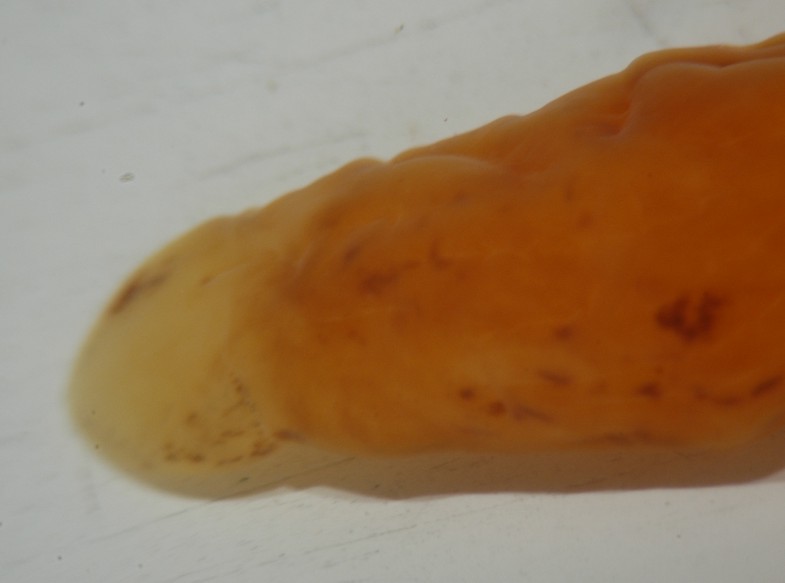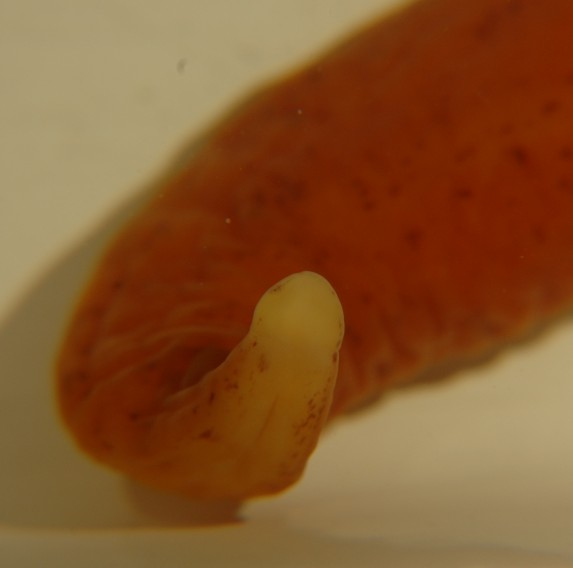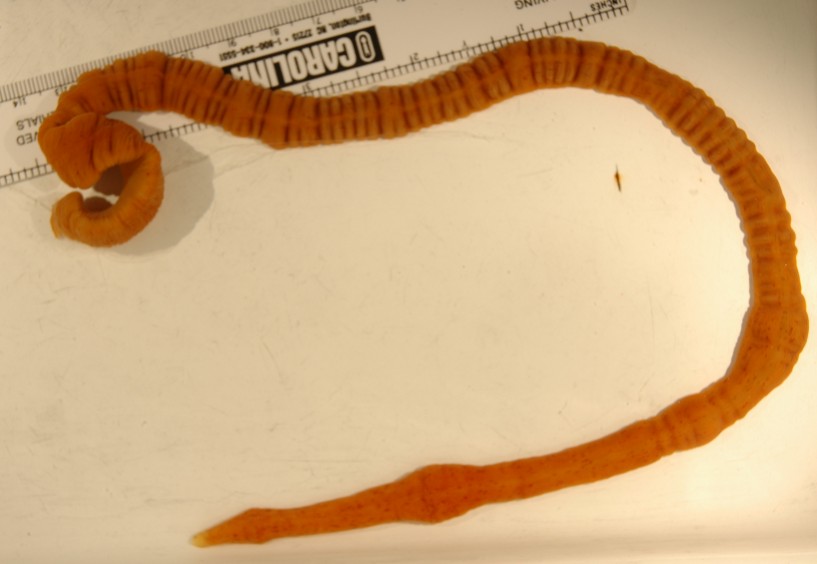How to Distinguish from Similar Species: Tubulanus polymorphus is also uniformly orange or reddish but it has no eyespots nor anteroventral grooves. The description of this species sounds very much like that of B. punnetti from farther south.
Geographical Range:
Depth Range:
Habitat:
Biology/Natural
History: The animal
is able to contract its body in such a way as to form annular regular
folds
along the body (photo).
It can contract its head entirely into its trunk.
| Return to: | |||
| Main Page | Alphabetic Index | Systematic Index | Glossary |
References:
Dichotomous Keys:Kozloff 1987, 1996
General References:
Scientific
Articles:
Web sites:
General Notes and Observations: Locations, abundances, unusual behaviors:

The head is lighter dorsally than is
the rest of the dorsum,
and has
a line of dark eyespots around the border.

The underside is lighter than the
dorsum, as seen in this
view of an
upraised head.

The animal can constrict its muscles
to form annular
constrictions.
Authors and Editors of Page:
Dave Cowles (2007): Created original page
Jonathan Cowles (2007): Updated page with CSS
